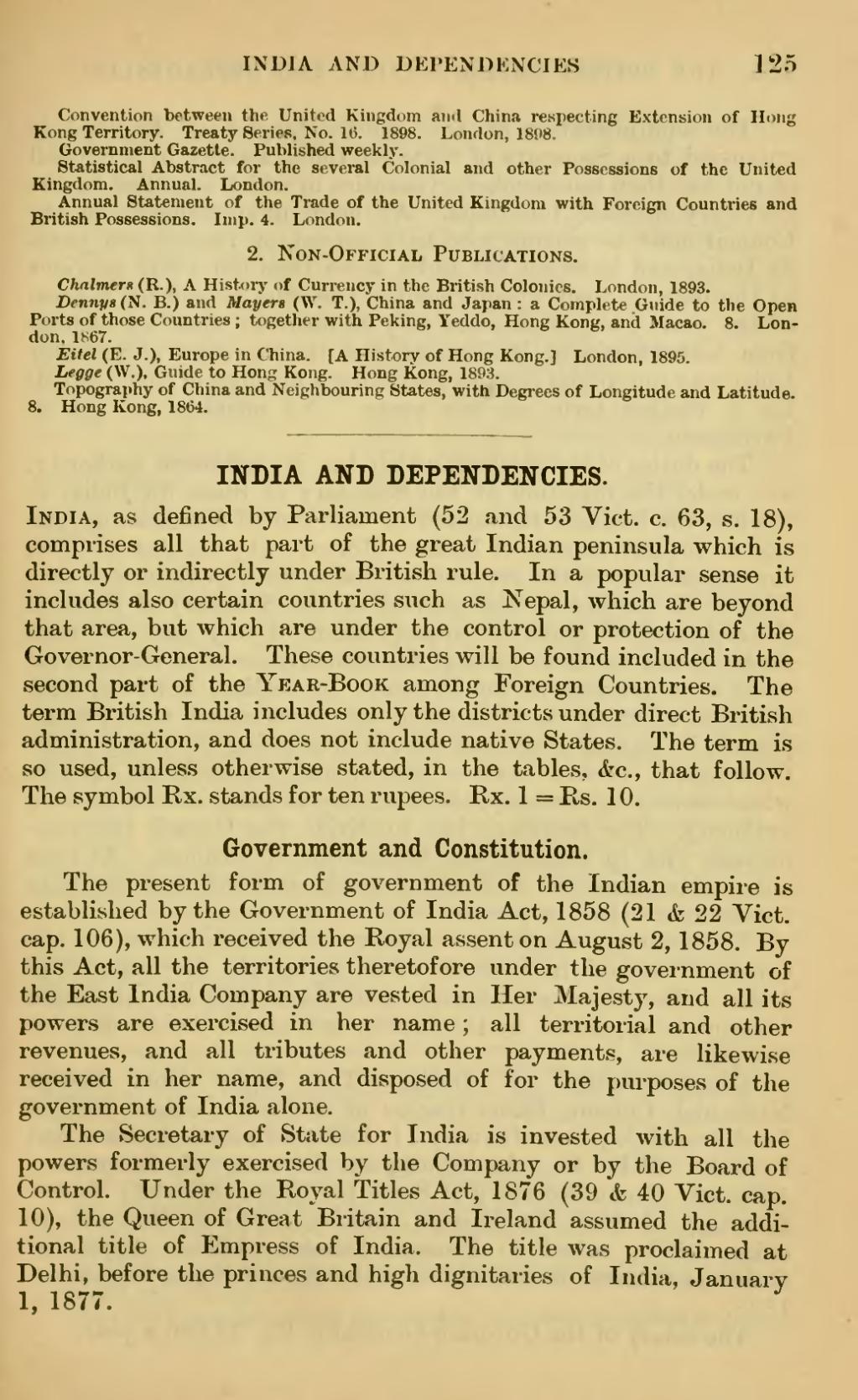INDIA AND DEPENDENCIES 125 Convention between the United Kingdom and China respecting Extension of Hong Kong Territory. Treaty Series, No. 10. 1898. London, 1898. Government Gazette. Published weekly. Statistical Abstract for the several Colonial and other Possessions of the United Kingdom. Annual. London. Annual Statement of the Trade of the United Kingdom with Foreign Countries and British Possessions. Imp. 4. London. 2. Non-Official Publications. Chalmern (II.), A History of Currency in the British Colonics. London, 1893. Dennys(^. B.) and Mayers (W. T.), China and Japan : a Complete Guide to the Open Ports of those Countries ; together with Peking, Yeddo, Hong Kong, and Macao. 8. Lon- don, 18(57. Eitel (E. J.), Europe in China. [A History of Hong Kong.] London, 1895. Legge (W.). Guide to Hong Kong. Hong Kong, 1893. Topography of China and Neighbouring States, with Degi'ees of Longitude and Latitude. 8. Hong Kong, 1864.
INDIA AND DEPENDENCIES. India, as defined by Parliament (52 and 53 Vict. c. 63, s. 18), comprises all that part of the great Indian peninsula which is directly or indirectly under British rule. In a popular sense it includes also certain countries such as Nepal, which are beyond that area, but which are under the control or protection of the Governor-General. These countries will be found included in the second part of the Year-Book among Foreign Countries. The term British India includes only the districts under direct British administration, and does not include native States. The term is so used, unless otherwise stated, in the tables, &c., that follow. The symbol Rx. stands for ten rupees. Rx. 1 = Rs. 1 0. Government and Constitution. The present form of government of the Indian empire is established by the Government of India Act, 1858 (21 &, 22 Vict. cap. 106), which received the Royal assent on August 2, 1858. By this Act, all the territories theretofore under the government of the East India Company are vested in Her Majesty, and all its powers are exercised in her name ; all territorial and other revenues, and all tributes and other payments, are likewise received in her name, and disposed of for the purposes of the government of India alone. The Secretary of State for India is invested with all the powers formerly exercised by the Company or by the Board of Control. Under the Royal Titles Act, 1876 (39 & 40 Vict. cap. 10), the Queen of Great Britain and Ireland assumed the addi- tional title of Empress of India. The title was proclaimed at Delhi, before the princes and high dignitaries of India, January 1, 1877.

